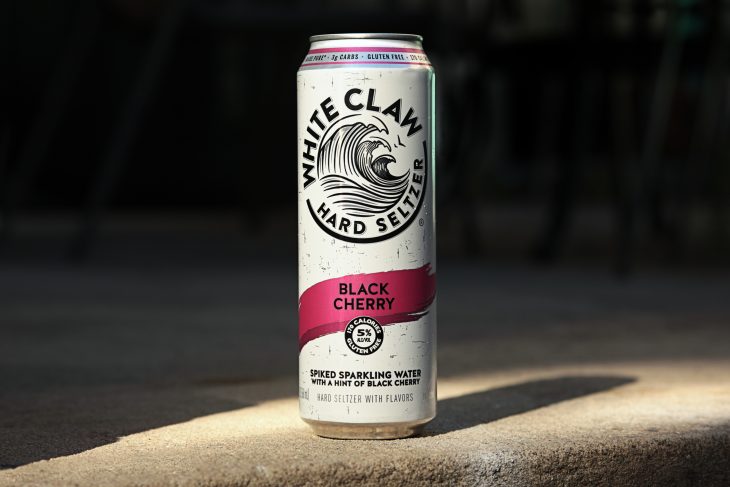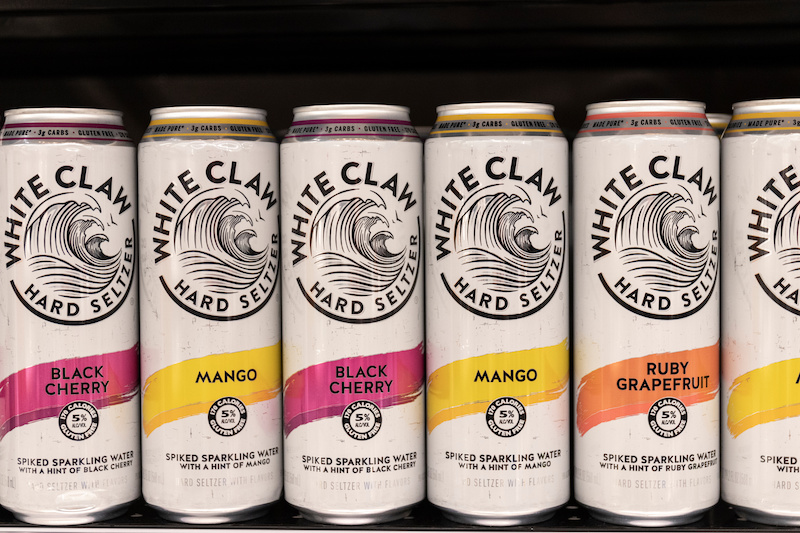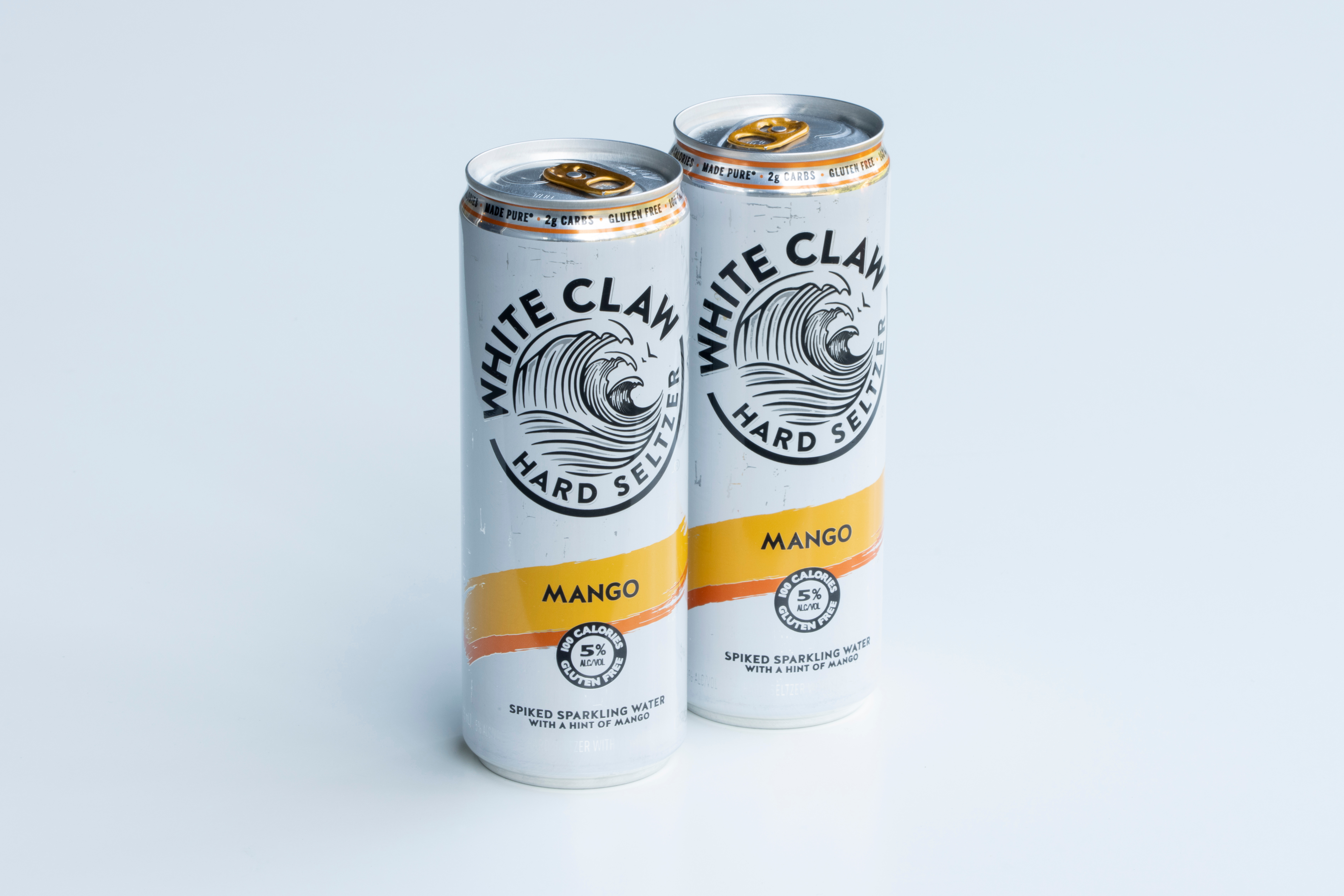
Kick off your high-summer weekend the right way with a refreshing White Claw – but how much do you really know about it? We’re breaking down the beverage to its nutritional core, so you can make an informed decision on when and how often to indulge. From total calories consumed per sip to what separates all flavors apart, keep reading for our detailed breakdown of 20 White Claw nutrition facts. Whether you’re sipping solely for pleasure or as part of a healthier diet plan, this post has got you covered!
Calorie Count
White Claw contains 100 calories per 12-ounce can, making it an attractive option for those who are watching their calorie intake. Its low-calorie content is primarily due to the absence of added sugars and its use of natural flavors.
Alcohol Content
White Claw has an alcohol by volume (ABV) of 5%, which is comparable to many light beers. The alcohol in White Claw comes from fermented sugars derived from gluten-free grains, such as rice or corn.
Carbohydrates
Each 12-ounce can of White Claw contains just 2 grams of carbohydrates. The low carbohydrate content makes it a popular choice among individuals following a low-carb or ketogenic diet.
Sugar Content
White Claw contains just 2 grams of total sugar. Most of its sugar content is derived from the natural fruit flavors used in the beverage.
Sodium Content
Each can of White Claw contains 20 milligrams of sodium, which is approximately 1% of the daily recommended intake for adults. This low sodium content is beneficial for those monitoring their sodium intake for health reasons.
Gluten-Free
White Claw is gluten-free, making it suitable for individuals with celiac disease or gluten sensitivity. The alcohol in White Claw is derived from gluten-free grains.
Variety of Flavors
White Claw offers a range of flavors, including Black Cherry, Mango, Natural Lime, Ruby Grapefruit, Raspberry, Watermelon, Tangerine, and Lemon. This variety caters to different taste preferences and encourages consumers to try new flavors.

Low in Sulfites
White Claw contains low levels of sulfites, which are commonly used as preservatives in other alcoholic beverages. This makes it a good option for those who are sensitive to sulfites or prefer a cleaner-tasting beverage.
No Artificial Flavors
White Claw uses natural fruit flavors, avoiding artificial flavors and sweeteners. This contributes to its clean, crisp taste and enhances its appeal to health-conscious consumers.
Hydration
While White Claw is an alcoholic beverage, it contains a significant amount of seltzer water, which can contribute to hydration. However, it is important to remember that alcohol can also have a dehydrating effect and should be consumed in moderation.
Vegan-Friendly
White Claw is vegan-friendly, as it does not contain any animal-derived ingredients or by-products. However, White Claw does contain cane sugar, which is regarded by some as a non-vegan product.
Keto-Friendly
With only 2 grams of carbohydrates per can, White Claw is compatible with a ketogenic diet. This makes it a popular choice for those following a low-carb, high-fat eating plan.
Caffeine-Free
White Claw products are mostly caffeine-free, making them a suitable choice for individuals who are sensitive to caffeine or prefer to avoid it in their beverages. The only exception is the White Claw Hard Seltzer Iced Tea, which is the only White Claw beverage that contains a very small amount of caffeine.
No Fat
White Claw contains no fat, making it a lighter choice compared to other alcoholic beverages that may contain higher fat content.
No Protein
White Claw does not contain any protein. As an alcoholic beverage, it should not be considered a source of essential nutrients.
No Cholesterol
White Claw is cholesterol-free, which can be beneficial for those watching their cholesterol levels for health reasons.
No Fiber
White Claw does not contain any fiber, as it is a clear, carbonated beverage with minimal ingredients.
Popular in the Hard Seltzer Market
White Claw has quickly become one of the leading brands in the rapidly growing hard seltzer market. It appeals to a wide range of consumers due to its light, refreshing taste, and low-calorie content.
Portability
White Claw’s slim, lightweight cans make it a portable and convenient option for social events, outdoor activities, or simply enjoying at home. Moreover, White Claw cans are also recyclable, which reduces their environmental impact.

Moderation is Key
While White Claw offers several nutritional benefits, such as being low in calories, carbohydrates, and sugar, it is still an alcoholic beverage. As with any alcohol, it is essential to consume White Claw in moderation to avoid potential health risks associated with excessive alcohol consumption.
Conclusion
White Claw has made a significant impact on the hard seltzer market with its variety of flavors, low-calorie content, and natural ingredients. These 20 nutrition facts about White Claw provide insight into what makes this beverage a popular choice for many consumers seeking a lighter, refreshing alcoholic drink. However, it is crucial to remember that moderation is key when consuming any alcoholic beverage, including White Claw.
Was this page helpful?
Our commitment to delivering trustworthy and engaging content is at the heart of what we do. Each fact on our site is contributed by real users like you, bringing a wealth of diverse insights and information. To ensure the highest standards of accuracy and reliability, our dedicated editors meticulously review each submission. This process guarantees that the facts we share are not only fascinating but also credible. Trust in our commitment to quality and authenticity as you explore and learn with us.
